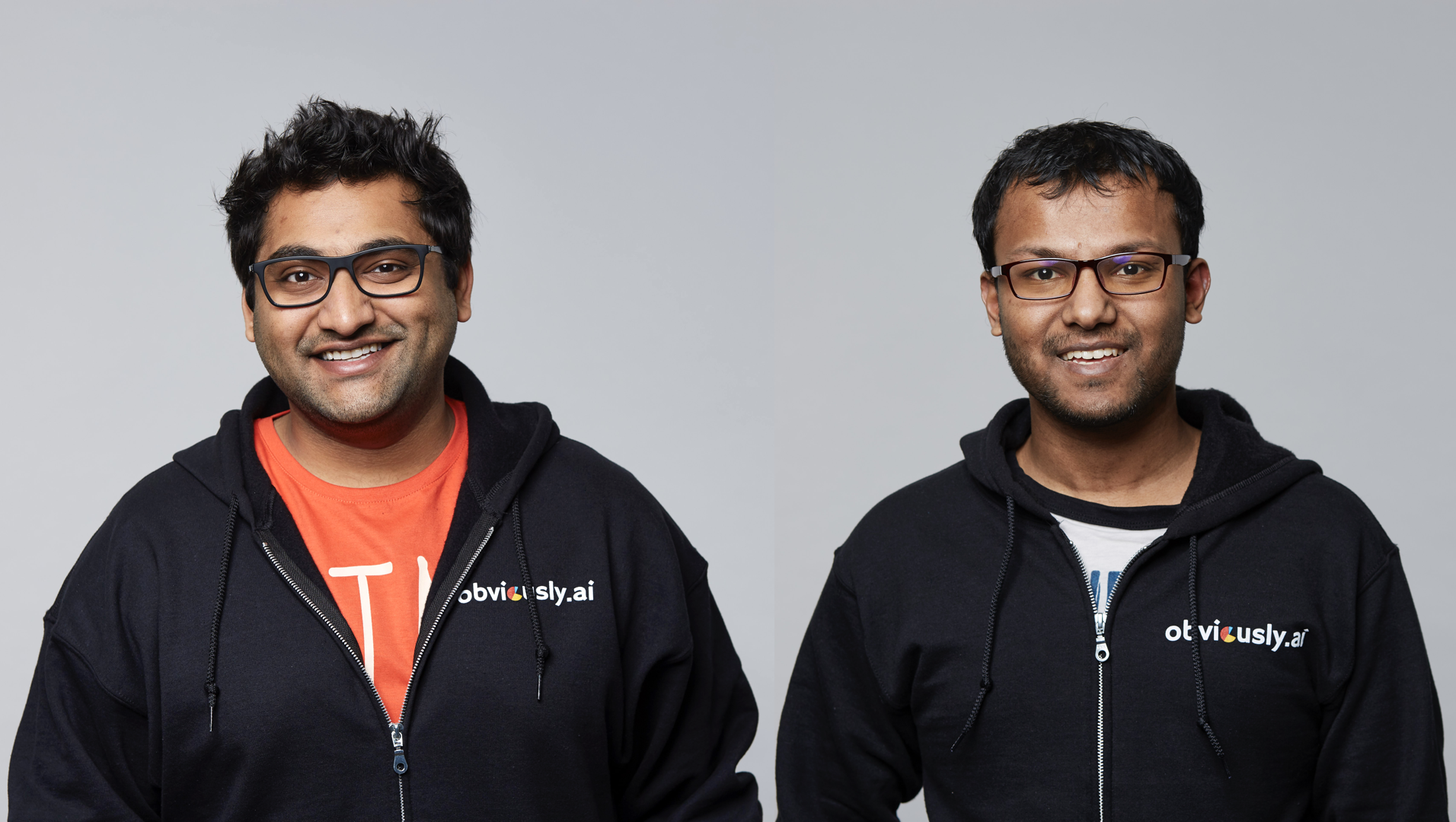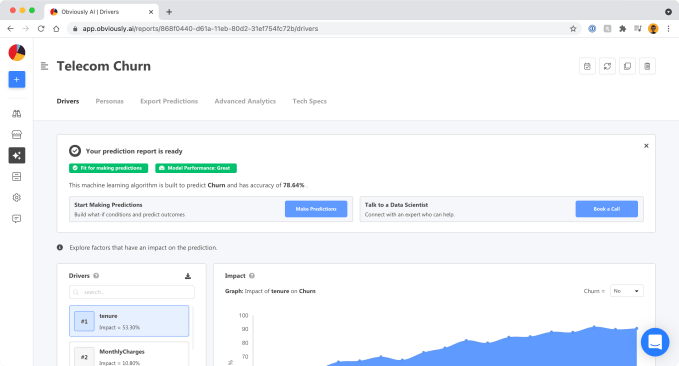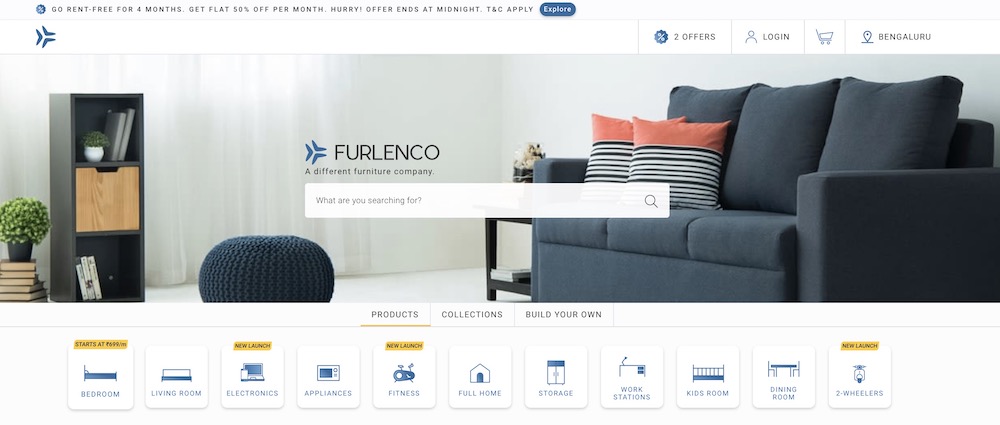The Station is a weekly newsletter dedicated to all things transportation. Sign up here — just click The Station — to receive it every weekend in your inbox.
Happy 4th of July! For those of you who are actually checking your emails today while getting some sun at an overcrowded beach or diligently grilling hot dogs, welcome back to The Station, a weekly newsletter dedicated to all the ways people and packages move (today and in the future) from Point A to Point B.
Kirsten Korosec, your usual host, is off enjoying the great American outdoors, so please enjoy this takeover all the way from Auckland, New Zealand! Despite the winter chill down under and my singularity as an American on this island, I’m feeling particularly patriotic today. It was on this day 245 years ago that the 13 colonies declared themselves free and independent states, with all the power to establish commerce and pursue happiness and what not.
As I sit here, a journalist, with a front row seat to the history of technological advancement, I can’t help but notice that the spirit of the Declaration of Independence, one that rebuffs authority for freedom to act as one chooses, is alive and well in the startup world. Technology, even in the transportation space, soars ever upward, unshackled in many cases by corresponding rules and regulations, and the government hastens to catch up.
Don’t know what I mean? I had a conversation today with Lacuna CEO Hugh Martin, and he mentioned something that stayed with me and found its way into this rant. Venture capital is pouring into startups creating technology like eVTOL, air taxis, rockets and drones, but consider this: What is the ratio of startups building such futuristic tech compared to departments of transportation with aviation departments? Public private partnerships need to step up, and fast.
Ok, rant over. Enjoy your firecrackers.
Email me at rebecca.techcrunch@gmail.com to share thoughts, criticisms, offer up opinions or tips. You can also follow me on Twitter, but please don’t DM me. — @rebeccabellan.
Micromobbin’

Bird is having a tough week, pulling operations in San Francisco and Santa Monica, as well as Zaragoza in Spain. Both California cities had new scooter permits beginning on July 1, but there hasn’t been a Bird in sight since June 30.
In San Francisco, Bird goes by Scoot, the company it acquired in June 2019 that has been in SF for around a decade. Bird previously operated in the city, but was kicked out in 2018, along with Lime, so this was an off-hand way of making it back into the Golden City. This time around, the SFMTA is asking Bird to halt its operations, even as the 2021 permit program begins without it, and is also levying fines to the tune of $105,600 against the company. Apparently, Bird got caught implementing its fleet manager program with unauthorized subcontractors. The permit does allow for scooter companies to use subcontractors, but they need prior approval and proof of insurance, which Bird did not provide for at least three subcontractors. The SFMTA is currently deferring its decision on letting Bird back in until it has conducted an investigation into the matter.
“Scoot is proud to have partnered with the city for nearly a decade providing shared micro electric vehicles for San Francisco,” a Bird spokesperson told TechCrunch. “We are cooperating fully with the SFMTA to swiftly resolve the clerical error that occurred while urgently providing existing local businesses an alternative source of revenue during the pandemic. We apologize for the inconvenience to our riders during this evaluation period and are eager to once again serve San Francisco residents and visitors as soon as possible.”
Lime and Spin, on the other hand, have been asked to stay in San Francisco, so congrats to them. They’ll also be operating in Santa Monica, where Bird was again not chosen for the 2021 scooter program in large part because the city found Bird’s service to be lacking in safety and rider features, affordability and customer service, according to the Santa Monica selection committee scorecard shared with TechCrunch. The company filed an appeal and threatened litigation back in May, but was denied this week and basically told it didn’t have a legal basis for suing, according to letters between Bird’s attorneys and the City of Santa Monica shared with TechCrunch.
Veo and Wheels will also be operating in Santa Monica. Meanwhile in Spain, the Zaragoza City Council asked Bird to cease operations from September onward due to noncompliance issues.
Speaking of Veo, the company has been on a bit of a roll after winning the New York permit. This week, Veo unveiled what might be the industry’s first e-scooter with integrated turn signals, a sweet new safety feature that hopefully the rest of the industry will pick up on. Veo will deploy these scooters in Santa Monica and NYC next week.
Forget sharing scooters. Go get your own.
Electric micromobility dealership Ridepanda is making it easier for the average consumer to purchase a sick light duty electric vehicle like a scooter, bike or moped. Its e-commerce platform displays vehicles that are vetted by the team to ensure high quality with replaceable parts. Once you order a vehicle that’s been curated for you and your needs, it’ll get shipped to your door (optional assembly person included). The startup just raised $3.75 million, an extension from last year’s seed round, from lead investors like Yamaha Motor Company, Porsche Ventures and Proeza Ventures.
Something for everyone?
Have you ever felt like the electric micromobility space hasn’t been badass enough? Well, Evolve Skateboards has the solution for you! Its new Hadean Series skateboard can zoom up to 31 mph, and its battery can go up to 42 miles on a single charge. Rather than a wooden board, this gnarly ride’s frame is made with forged carbon composite making it strong enough to handle increased speeds and next level ollies. The cost is in the $2,500 to $3,000 range, so it’s certainly a toy for the dedicated thrill seeker.
— Rebecca Bellan
Deal of the week

Drone delivery startup Zipline, a company that got its start delivering medical supplies across Africa, has raised $250 million in new funding. This latest round has vaulted the company’s valuation to $2.75 billion and will fuel further expansion of its logistics networks in Africa and the United States.
Big bets are being made in the instant logistics space. While Zipline is pretty focused on delivering health supplies at the moment, it’s open to expanding into other industries as time goes on. Either way, it’s doing very well with partnerships like UPS in Rwanda, the Toyota Group in Japan and Novant Health and Walmart in the U.S.
Other deals that caught my attention…
Microsoft and Sompo Holdings have committed a combined $25 million as part of a partnership with connected vehicle data startup Wejo that will help the company collect, store and analyze data from millions of connected vehicles around the world. This follows Wejo’s SPAC merger with Virtuoso Acquisition Corp., which should close later this year. The company’s total PIPE financing is $125 million.
While we’re talking SPACs, electric vehicle charging station network EVgo, which announced its SPAC deal with Climate Change Crisis Real Impact I Acquisition Corp. back in January, has completed its business combination with CLII. The combined company will go by “EVgo Inc.” and has been trading as such on the NASDAQ since July 2.
Turntide Technologies, a sustainable technology developer that’s created a smart electric motor system, has announced $225 million in convertible note financing that it says will help fund projects to reduce carbon emissions in the commercial buildings, agriculture and transportation industries.The money comes from the Canadian Pension Plan Investment Board, Monashee Capital, JLL Spark, Breakthrough Energy Ventures and Suvretta Capital Management, bringing Turntide’s total funding to $400 million
Autonomous driving system developer Ghost Locomotion has raised a $100 million in Series D funding in a round led by Sutter Hill Ventures. Returning investor Founders Fund also participated in the round, along with Coatue. The money will be used toward R&D as the company continues to develop its highway self-driving and crash prevention technology.
Australian rocket launch startup Gilmour Space Technologies has raised $46 million in a Series C that it will use to take its small launch vehicle, Eris, to space next year. The round was led by Fine Structure Ventures and included contributions from Australian VCs Blackbird and Main Sequence, and Australian pension funds HESTA, Hostplus and NGS Super.
You probably don’t remember, but a little while back we covered Onto, an electric vehicle subscription service in the U.K. Well, this model appears to be catching. A similar business going by imove in Norway has just raised around $19 million in a Series A led by pan-European online car market AutoScout24, venture capital player Norselab, and the Norwegian state climate investment company Nysnø.
Ghanaian-based software company Jetstream just raised $3 million in seed funding. The company aims to enable African businesses to see and control their own cross-border supply chains. It aggregates private sector logistics providers at African ports and borders, and brings them online. Local and international investors participated in the round, including Alitheia IDF, Golden Palm Investments, 4DX Ventures, Lightspeed Venture Partners, Asia Pacific Land, Breyer Labs and MSA Capital.
Electric propulsion and powertrain developer Enedym raised $15 million from a round led by P&A Paletta Giving Inc., TRIO Capital Group Inc., Napino Group, KWG Capital Inc., Pathfinder Asset Management Limited and others. The Canadian company will use the funds to accelerate its patented motor development tech and get into more of the electric motor market, including automotive, micromobility, windfarms and industrial markets.
Policy corner
 Hi folks, welcome back to Policy Corner. Let’s dive in.
Hi folks, welcome back to Policy Corner. Let’s dive in.
Mayors from nine American cities, including Los Angeles and Denver, sent a letter on June 30 urging federal lawmakers to include funds for planning grants for advanced air mobility (AAM) in the massive infrastructure legislation currently being debated in Congress. The letter, shared with TechCrunch by a source familiar with the matter, argues that federal grant funding for planning studies would help cities better understand and prepare for AAM technology.
The brief letter is fuzzy on the details. The mayors request a “modest” amount of funding. The source told TechCrunch that it would likely be in the low tens of millions, with the assumption that a one-year planning study in a large metropolitan city would cost around $1 million. So the total funds would cover around 15-20 cities. The idea is that this information could inform future rule-makings or even the Federal Aviation Administration’s reauthorization bill that’s coming up in 2023.
One thing that’s notable about the letter is a line that starts, “When this new transportation technology launches in 2024 and beyond … ”. While 2024 has been publicly set as a launch target for eVTOL developer like Archer Aviation and Joby Aviation, timelines are a tricky thing for emerging technologies.
In any case, I’ll be keeping track of these developments. It’s hard to imagine Congressional Republicans agreeing to funding for AAM when they could hardly agree on electric vehicles, but we’ll see — the low tens of millions may be a blip on the budget line of such a large funding package.
The National Highway Traffic Safety Administration on June 29 issued an order requiring OEMS and drivers of vehicles equipped with autonomous driving systems to report crashes within one day of learning about them. The order specifically relates to SAE Level 2 advanced driver assistance systems or SAE Levels 3-5 automated driving systems. Any incident that involves an injury that had to be treated at a hospital, a death, a vehicle tow-away, air bag deployment, or a pedestrian or bicyclist must be reported, the order says.
NHTSA says the data collected from this order will help identify safety issues or defects in the technology. “By mandating crash reporting, the agency will have access to critical data that will help quickly identify safety issues that could emerge in these automated systems,” said Dr. Steven Cliff, NHTSA’s acting administrator. “In fact, gathering data will help instill public confidence that the federal government is closely overseeing the safety of automated vehicles.”
— Aria Alamalhodaei
Notable reads and other tidbits

Extra Crunchy
Alex Wilhelm explored some financials about Uber and its Chinese rival Didi, which is looking to list in the U.S. The company’s IPO filing was big news, but it appears to be valued several tens of billions of dollars lower than Uber, despite the fact that it’s larger and more profitable.
Renaissance Capital calculates Didi’s midpoint valuation using a fully diluted share count at $67.5 billion, and Yahoo Finance pegged Uber at $95.2 billion. Why the large difference? Wilhelm speculates it could have something to do with Uber’s more expanded reach and different revenue streams, like its delivery business, as Didi is mostly concentrated on its Chinese mobility business.
Rimac Automobili sat down with Kirsten Korosec to share his lessons from bootstrapping his EV company during our TC Sessions: Mobility 2021 event.
We actually bootstrapped a car company. We had revenue from day one, not because we wanted to, but because there was no alternative and there was absolutely no other way for us. So most of the years in business, we are actually profitable. And that’s pretty tough.
You have these big electric car startups that have received billions of funding and so on. Hats off to them, great job. But we had to survive from the very beginning by the stuff that we were doing and making for other car companies.
GM’s newest startup investment BrightDrop boasts an ecosystem of EV hardware and logistical software products targeting fleet and delivery companies. GM has invested $800 million to convert a Canadian factory that currently builds the Chevy Equinox to build the EV600 delivery van.
Electric vehicles
Chinese EV maker NIO released its June delivery results. It delivered 8,083 units of smart electric vehicles which it says is a YOY increase of 116%. In Q2 in total it delivered nearly 22,000 vehicles, and in the first half of 2021, it delivered nearly 42,000 vehicles. Ok, NIO, we see you.
Honda will be selling its first electric SUV in North America in early 2024. The new car’s name, Prologue, is meant to signify the beginning of what the company called its “new electrified era.”
Revel, the company that started with electric moped shares and now has its hands in a lot of electric mobility pies, has officially launched its Superhub in Brooklyn. With 25 chargers all in one place and easily accessible, it’s the largest universal charging station in North America, the company says.
This week Volvo Cars detailed its strategy for electrifying its entire car lineup by 2030. It plans to work with partners like Northvolt, Google and Luminar to build out its future vehicles lineup. It also unveiled the first images of “Concept Recharge,” a concept EV that has flat floors, two interior screens and rear “suicide doors” that open from the middle of the vehicle.
Autonomous vehicles
Pittsburgh-based autonomous trucking company Locomotion is pitching a convoy system in which a lead driver pilots a truck and another truck, with a human passenger/backup operator, follows it autonomously. The company told TechCrunch it thinks using such a human-guided system will be the fastest and smoothest route to commercialization.
Aurora’s CEO Chris Urmson shared some thoughts on the progress the company has made on commercializing the Aurora Driver and delivering it at scale.
Data is power
Kruze Consulting, a startup CFO/accounting firm with access to the books of over 450 venture-funded startups, has shared some data with TechCrunch that shows ride-share spend is rebounding in the startup world, with Uber expanding its lead against Lyft. The study also found cost per ride is higher than 2020 averages, likely due to a scarcity of drivers.
Stockholm-based e-scooter operator Voi released a study that demonstrates how partnerships between operators and transit authorities can lead to higher public transit ridership. The study specifically details how a joint initiative with Stuttgart’s rail operator S-Bahn Stuttgart to integrate Voi and the Mobility Stuttgart app, saw at least a 35% increase in rail tickets purchased by Voi users.
Fresh meat
Autonomous delivery company Nuro announced the appointment of James Owens as the company’s new head of Regulatory.
Anthony Gregory, former VP of ground operations at Southwest, has joined GM-owned Cruise as the new VP of market development.
Other tidbits
Columbus, Ohio won the U.S. Department of Transportation’s Smart City Challenge in 2015. Smart City Columbus ran from 2016 until mid-June 2021, using all kinds of new tech to improve its transportation system and general mobility. What did Columbus do with its $50 million in grant money? Check out all the tech that went into the Smart City.
BMW i Ventures, the venture capital arm of BMW Group, has announced a new $300 million fund to further its investment in technologies that make transportation, manufacturing and supply chains more sustainable. This isn’t about core car tech. It’s about everything that goes into making the cars, from sustainable materials for car seats to decarbonizing metal.
Ford is partnering with insurance company State Farm to share vehicle data to better understand how safety features impact claims. A statement from Ford reads: “Ford’s new Vehicle Build Data product provides State Farm a comprehensive view of a vehicle’s feature content and a better understanding of how advanced driver assistance systems (ADAS) impact the frequency and severity of auto claims. State Farm is also sharing claims data with Ford to help inform them on how specific vehicle features impact auto claims.”
Last mile logistics management software company Onfleet has announced its 100 millionth delivery and significant company growth.
General Motors has announced the creation of a new $25 million Climate Equity Fund for equitable climate action. This is intended as a complement to the automaker’s recently announced $35 billion investment into EV and AV technologies globally through 2025.

Source: Tech Crunch

















